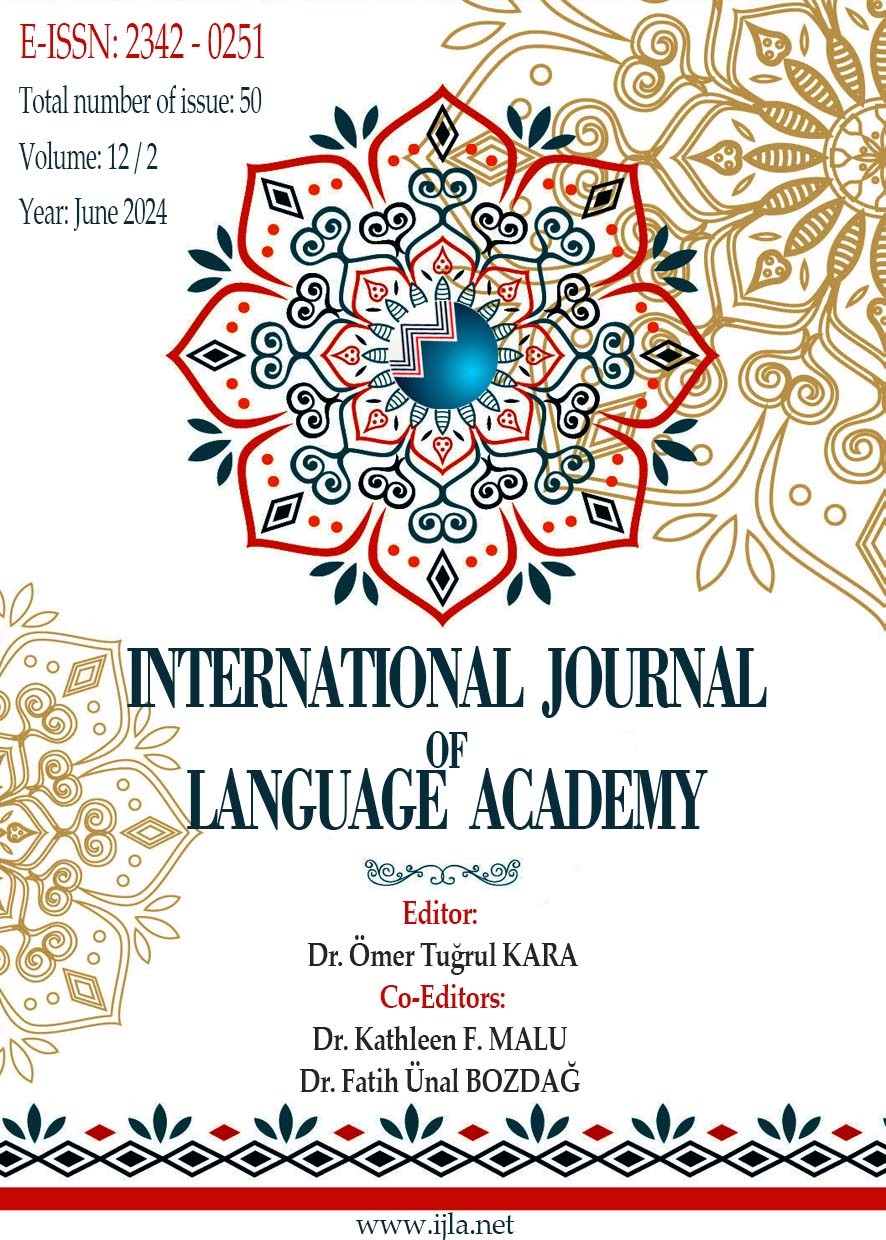KİTAP HANGİ SAATLERDE OKUNUR? TÜRK DİLİ VE EDEBİYATI ÖĞRETMENLERİNİN LİSELERDEKİ KİTAP OKUMA SAATLERİNE İLİŞKİN GÖRÜŞLERİ
Author :
Abstract
Bilgi, çağımızda teknolojik gelişmelerin paralelinde hızla yayılım eğilimi göstermektedir. Birey hızlı yayılımın yaşandığı bu çağda bilginin niteliğini okuma ve anlama yolu ile belirler. Niteliğin doğru şekilde saptanması ise okuma becerisinin bireye kazandırılması ile sağlanır. Okuma becerisi bireye öğretmen rehberliğinde ilköğretim kademesinden başlayarak edindirilir. Okuma becerisini edinen bireylerin okuma alışkanlığı becerisi de paralel olarak gelişmektedir. Bu bağlamda bu araştırmanın amacı, Türk dili ve edebiyatı öğretmenlerinin liselerde uygulanan kitap okuma saatlerine ilişkin görüşleri ve kitapların hangi saatte okunmasının daha verimli olduğuna yönelik görüşlerini incelemektir. Bu amaçla araştırmacılar tarafından görüşme formu oluşturulmuş ve Artvin ili Merkez ilçesinde 2023-2024 eğitim öğretim yılında görev yapan Türk dili ve edebiyatı öğretmenleri ile görüşülerek mevcut veriler toplanmıştır. Araştırmada nitel araştırma yöntemlerinden fenomenoloji (olgubilim) deseni kullanılmıştır. Verileri toplamak için araştırmacılar tarafından geliştirilen açık uçlu sorulardan oluşan görüşme formu; araştırmaya katılım sağlayan Türk dili ve öğretmenlerinin demografik özelliklerini tespit etmek amacı ile de bir anket formu kullanılmıştır. Verilerin analizini sağlamak için içerik analizi yöntemi kullanılmıştır. Elde edilen bulgular araştırmacılar tarafından tablolar hâlinde sınıflandırılarak yorumlanmış ve sunulmuştur. Araştırma sonucunda Türk dili ve edebiyatı öğretmenleri, kitap okuma saatlerinin öğrencilerin okuma becerisine ve okuma alışkanlığına katkı sağladığını ifade etmişlerdir. Bunun yanında kitap okumak için en uygun ve verimli saatin 1. ders saati olduğu, öğrenciler için günlük 40 dakika kitap okuma süresinin yeterli olacağı saptanan bulgulardandır. Çalışma sonucunda elde edilen bulgulardan hareketle öneriler sunulmuştur.
Keywords
Abstract
Information tends to spread rapidly in parallel with technological advancements in our age. In this era of rapid dissemination, individuals determine the quality of information through reading and comprehension. Accurate determination of quality is achieved by imparting reading skills to individuals. Reading skills are acquired under the guidance of teachers starting from the primary education level. Individuals who acquire reading skills also develop the habit of reading in parallel. In this context, the aim of this research is to examine the opinions of Turkish Language and Literature teachers regarding the book reading hours implemented in high schools and their views on the most effective times for reading books. For this purpose, a interview form was created by the researchers, and data was collected by interviewing Turkish Language and Literature teachers serving in the central district of Artvin province during the 2023-2024 academic year. The phenomenology (phenomenological) pattern, one of the qualitative research methods, was used in the research. An interview form consisting of open-ended questions developed by the researchers was used to collect the data, and a questionnaire form was also used to determine the demographic characteristics of the Turkish Language and Literature teachers participating in the research. Content analysis method was used to analyze the data. The findings obtained were classified into tables by the researchers, interpreted, and presented. As a result of the research, Turkish Language and Literature teachers expressed that book reading hours contribute to students' reading skills and reading habits. Additionally, it was determined that the most suitable and efficient time for reading books is the first lesson of the day, and that a daily reading time of 40 minutes is sufficient for students. Recommendations were made based on the findings obtained at the end of the study.





